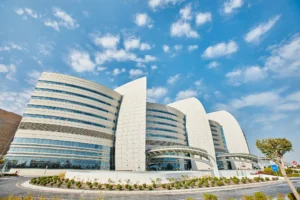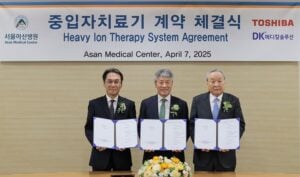The concept of precision medicine isn’t new. US President Barack Obama launched the Precision Medicine Initiative back in 2015. At the time, it was hailed as “a new era of medicine through research, technology, and policies… towards [the] development of individualised care.”
What is precision medicine?
Precision medicine dismisses the “one size fits all” concept and aims to provide personalised care for every individual patient. This is achieved by considering variations in a person’s lifestyle, genes and environment, for instance.
A spokesman for the National Institutes of Health (NIH) explained: “This approach will allow doctors and researchers to predict more accurately which treatment and prevention strategies for a particular disease will work in which groups of people.”
Electrical device for oral cancer
A device which can tell when cells transition from healthy to diseased is being used by doctors to detect oral cancer.
Eastman Dental Institute, the Royal Marsden and Bradford Royal Infirmary in the UK are conducting clinical trials with the 3DEP. It uses a technique known as dielectrophoresis to determine a cell’s electrical properties, which change when a cell becomes diseased.
Using the technique to assay cells can support drug screening and stem cell research. This may have future implications for Alzheimer’s disease, Parkinson’s and spinal cord injury.
Full-body MRI scan for cancer
Doctors at the Phoenix Hospital Group are using a new method of MRI scanning for the early detection of asymptomatic tumours in patients.
The non-invasive whole body-diffusion weighted imaging (WB-DWI) searches the entire body, including the kidney, liver, pancreas and bladder. The high-resolution images enable rapid diagnosis, and the scan can be completed in less than one hour.
MRI scanning does not involve ionising radiation, and patients don’t have to fast or take medication before the scan.
Pharmacogenomics – personalized medicine
Why do medicines cause side effects in some people but not others? Why do certain anti-depressants, for instance, work for only a percentage of the population? These are the questions that pharmacogenomics seeks to answer by matching an individual’s response to medicine with their genetic make-up.
St Clair’s Clinic in Pittsburgh, USA, has teamed up with the Mayo clinic to provide a pharmacogenomics PGx test for patients before they take medication. This is usually a swab on the inside of the cheek, which is then analysed at Mayo’s Personalized Genomics Laboratory.
AI-powered pathology algorithms
The Cleveland Clinic has signed a five-year deal with a leading Boston-based AI-pathology provider to help with next-generation pathology diagnostics. According to researchers, machine learning should lead to better clinical outcomes through more accurate diagnosis and treatment selection.
The Cleveland Clinic has already utilised AI and machine learning to help doctors work out the optimum dose of high radiation for up to 1000 lung cancer patients. Pre-treatment scans were analysed to predict treatment outcomes, and personalised radiation doses were calculated.
Radiation oncologist Dr Mohamed Abazeed said: “AI can learn from imaging and electronic health records and make predictions about an individual patient’s response to radiation treatment.”
Non-profit healthcare outfit Cedars-Sinai is creating an Artificial Intelligence in Medicine (AIM) division, which will focus on clinical care for cardiac imaging and sudden cardiac arrest.
Tomislav Mihaljevic, President and Chief Executive Officer at The Cleveland Clinic said:
“While AI will play a prominent role in the future of medicine, we must remember that it is a tool. It cannot provide care. It cannot offer empathy.
One thing that will not change is the importance of human interactions in medicine. Whatever technological advances are to come, caregivers will never lose sight of the noble purpose we have to care for others.”
But precision medicine screening – especially that based on big data – has its critics too. Early diagnosis of disease or risk factors in what appears to be a healthy individual can lead to “over medicalisation and over diagnosis” say some in the profession.
Medical Travel Market is launching agency services to connect patients with the world’s most advanced hospitals and clinics. Sign up below to stay informed.















